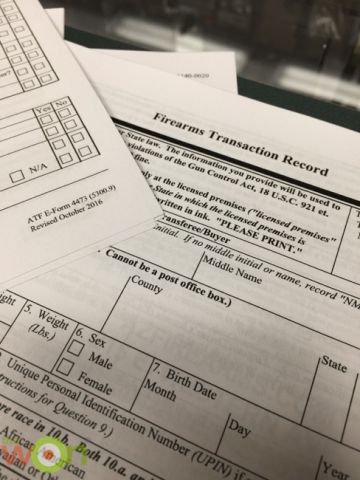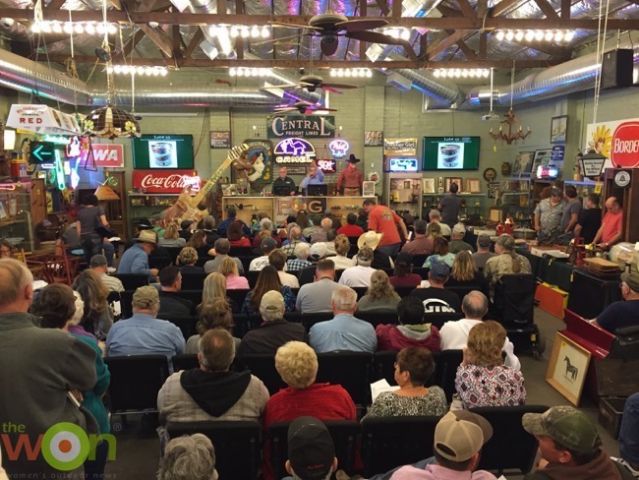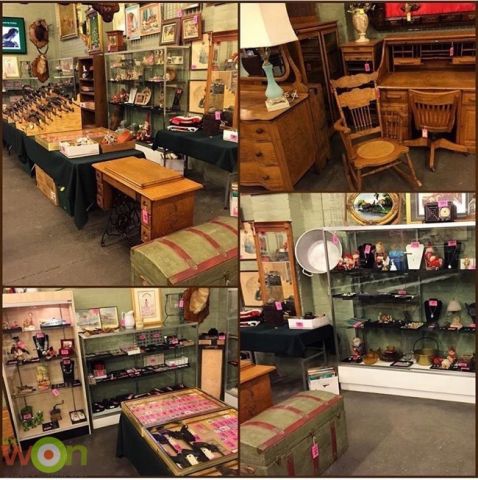It’s nearly tax season and many of us are dreaming about what to spend that annual “love letter from Uncle Sam” on. That tax-return check, or “gun money,” as many of us call it, is better than Christmas and our birthday rolled into one. It always feels like “found money.” Have you ever reached into your coat pocket and discovered a $20 bill you had forgotten about? It’s like that…only with more zeroes.
Now that you have rediscovered it, how do you make that gun money stretch the farthest? Enter the seemingly magical world of auctions, where the power sits with the buyer to determine how much he or she is willing to pay for each item. I’ll help you understand some of the finer points of how to legally and safely purchase guns at both live auctions and online auction sites.
I own an auction house in Arizona, Pot of Gold Estate Auctions, where bidders have the option to bid either in person or online. There are many such auctions across the country, including the nationally recognized online site GunBroker.com, and a quick Google search will help you locate a brick-and-mortar auction house in your area. There are advantages to each method of bidding, so decide which is best for you. The advantage of attending in person is that you can often recognize when items have been overlooked by other bidders, and those sleepers are about to sell far below their real-world value. Online bidding offers the convenience and time-saving of bidding from your armchair (and you have access to merchandise from all over the country). Both methods are excellent ways to snap up some bargains.

Federal Form 4473
First, let me address the legalities of purchasing guns online. Politicians and news stories have presented a lot of misinformation and conflicting accounts of people buying guns illegally online, and via auction sites. You have likely become familiar with the phrase “online gun-sale loophole,” which would lead us to believe that people are somehow having guns shipped directly to their home from some online dealer or auction site, bypassing the necessary federal forms (such as Form 4473) and the accompanying background check. If this is happening, then those sales are breaking existing federal law. There is no loophole that the law hasn’t accounted for, whether online or in-person sales.
Any firearm purchased online is subject to the same laws as any in-person purchase. Transfers must be completed via a Transfer Agent/Federal Firearms License Dealer (FFL), and rather than the gun being shipped to the buyer’s home, the gun will be shipped to the local FFL of the buyer’s choosing. If a specific kind of firearm is illegal for you to own in your city or state, it is still illegal for you to own, no matter how you purchase the item. So know the laws of your state and find a local Transfer Agent—usually your corner gun shop—to handle receiving the gun and completing the required paperwork.

It’s fun to be a part of the excitement at brick and mortar auction house.
Now, let’s get to the fun part. How do we safely and legally buy guns at auction?
1) Check the reputation of the auction house, either via the Better Business Bureau rating, Yelp, or simply by doing a Google search to see if any derogatory comments pop up.
2) Read the terms and conditions page to make sure you are fully aware of the auction house’s rules and regulations, shipping charges, percentage of sales tax, bid increments and percentage of buyer’s premium. Some auction houses even have informative “how-to” videos, like the semi-corny ones my team and I put together.
3) Buyer’s premium is a percentage charged based on the hammer price of the item you “won” by being the highest bidder on that item. Most buyer’s premiums are between 10 and 25 percent, and are a taxable portion of the price paid for the item.
4) Hammer price is the base dollar amount you have committed to paying with your high bid. This is the price on which your buyer’s premium and taxes are based.
5) Most online auctions, but not all, are based on the proxy system, similar to that used on eBay, in which you place the highest dollar amount you are willing to pay into the system and other bidders drive your bid up to the ultimate ending price. Some online auctions will consider your highest bid as the price you are willing to pay, and do not require other bidders’ action to drive the price up. Be sure you know the format of each auction you are participating in.
6) Reserve prices may also be part of the equation. If a consignor has “protected” his or her item by adding a reserve (whether that price is stated or hidden) the item will remain unsold until that price is reached. So, even if your bid was the highest at the end of the bidding cycle, if you did not exceed the reserve price, the item will not be transferred or sold to you.
7) Understand that auction houses sell items “as-is, where-is,” meaning that no guarantees of quality or condition are given. Thus, they operate under a “buyer beware” policy. The reason for this is that auction houses are a venue between consignor and buyer, and once the consignor has been paid for the sale there is no reasonable recourse for the auction house to recover the funds from the consignor in order to offer a refund to the buyer. Even so, reputable auction houses do everything humanly possible to accurately describe every item, and if they have inadvertently described an item inaccurately, most will stand behind their wording and refund the buyer. However, the ultimate decision of the value and acceptable condition of any item rests with the bidder.
8) Be sure to have researched the items you are interested in bidding on, including the real-world value. At Pot of Gold Auctions we have a sister company, AZFirearms, that is a retail gun shop right next door. On many occasions our bidders have gotten caught up in the excitement and competition of bidding and have ended up bidding more for a used firearm than they could have paid for a brand new one just like it next door.

When you visit an auction house you may find even more treasures.
Now let’s put all this newfound knowledge to work. Let’s say you’ve found an auction site you trust, you have read all the rules and terms, you know the laws for which guns you are legally allowed to own in your state, you have picked a local Transfer Agent, and you are ready to do some serious bidding. First and foremost, you should inspect the items on which you plan to bid. As mentioned above, the decision of acceptable condition and value rests solely with you, the bidder. If you’re bidding online you can examine the photos, read the descriptions thoroughly, and email the auction house with any questions you have before you place any bids. If you’re bidding in person, be sure to touch each item. Use good lighting, a bore light, and perhaps even a magnifying glass to know that you are making an informed bid.
Register and place any required deposits, obtain your bidder number (online you will have a bidder account rather than a number), and get ready to enjoy the power of setting the price you are willing to pay for each item.
One final thought: Auctions are not only a great way to add to your collection, they are also an excellent way to sell your used firearms, and free up some funds to—you guessed it—have more gun money to spend. Happy bidding (and selling)!
Cheryl Todd is the executive producer and co-host of “Gun Freedom Radio,” owner of AZFirearms Auctions, Pot Of Gold Auctions and founder of the grassroots movement Polka Dots Are My Camo. Cheryl is the Arizona state director for The DC Project and travels the country speaking as a champion for our Second Amendment rights. She is a driving force in preserving the legacy of freedom for generations to come. View all posts by Cheryl Todd